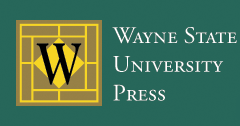Abstract
Th is essay argues that two different orientations have shaped the growth of European folkloristics and that they were an expression of two different forms of nation-state development. In the case of long-established polities, folklore was defined socially by certain cultural forms proper to the lower classes of the residual agrarian world. In the case of new nation-state formations, it was defined aesthetically by the various narrative forms of Volkspoesie. To identify folklore socially, the only narrative that gave meaning to it was that of progress: it was not without value, but was destined to be superseded in the onward march of modern civilization. Understood as an aesthetic phenomenon, folklore greatly enlarged the acknowledged artistic heritage of peoples, providing them with heroes and with models for actions that seemed to transcend the historical process that had left them without a state. Folklore studies became intellectually marginalized in the first case, undermined by the taint of amateurism, while in the second, a professionalized scholarly discipline found its place in the academy.
Recommended Citation
Ó Giolláin, Diarmuid
(2014)
"Narratives of Nation or of Progress? Genealogies of European Folklore Studies,"
Narrative Culture: Vol. 1:
Iss.
1, Article 5.
Available at:
https://digitalcommons.wayne.edu/narrative/vol1/iss1/5
